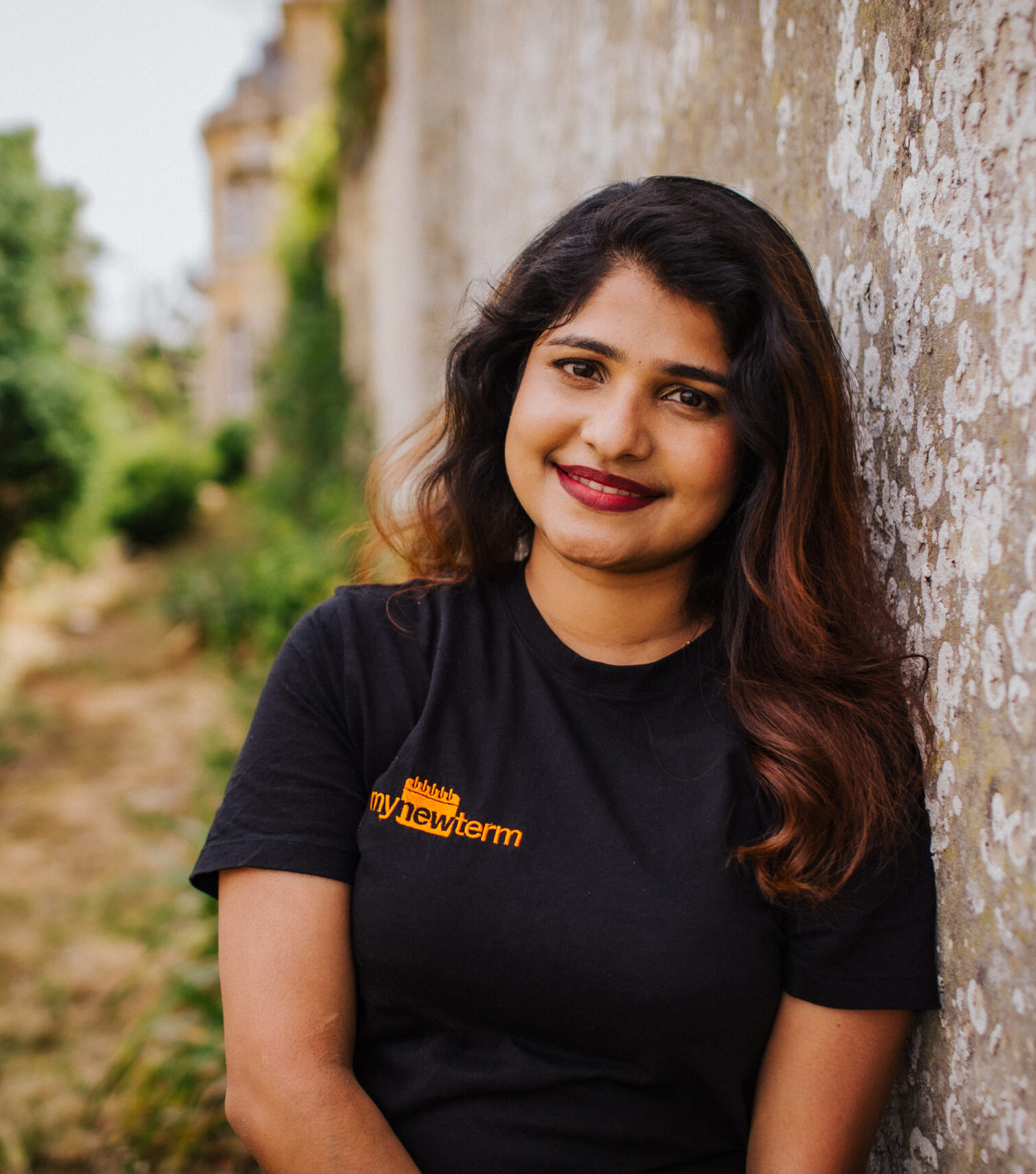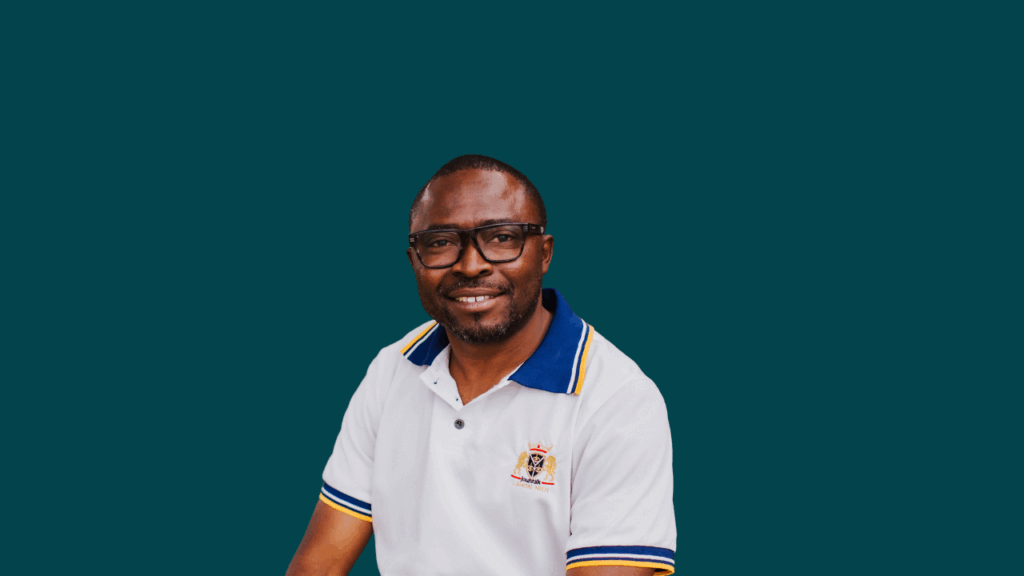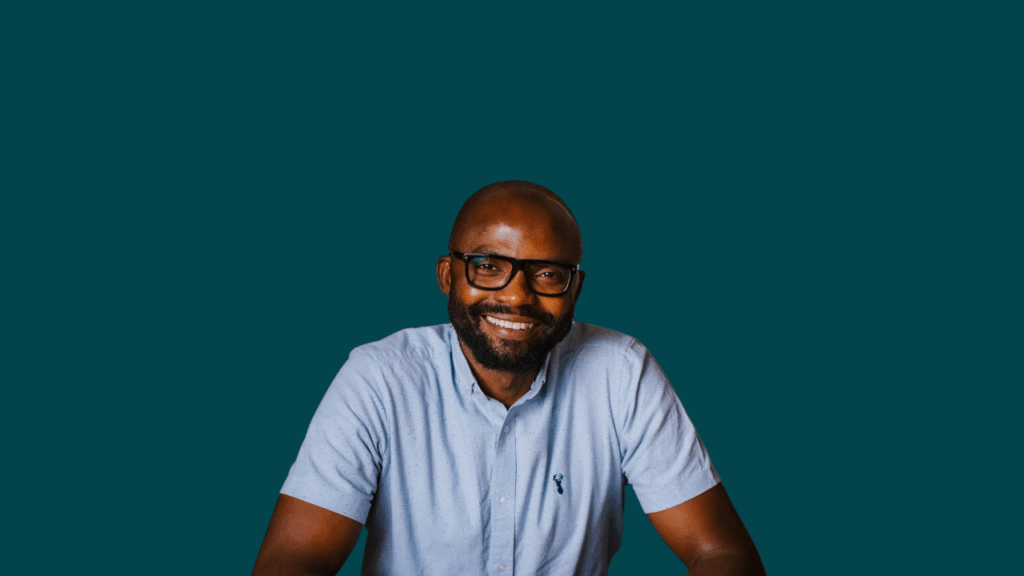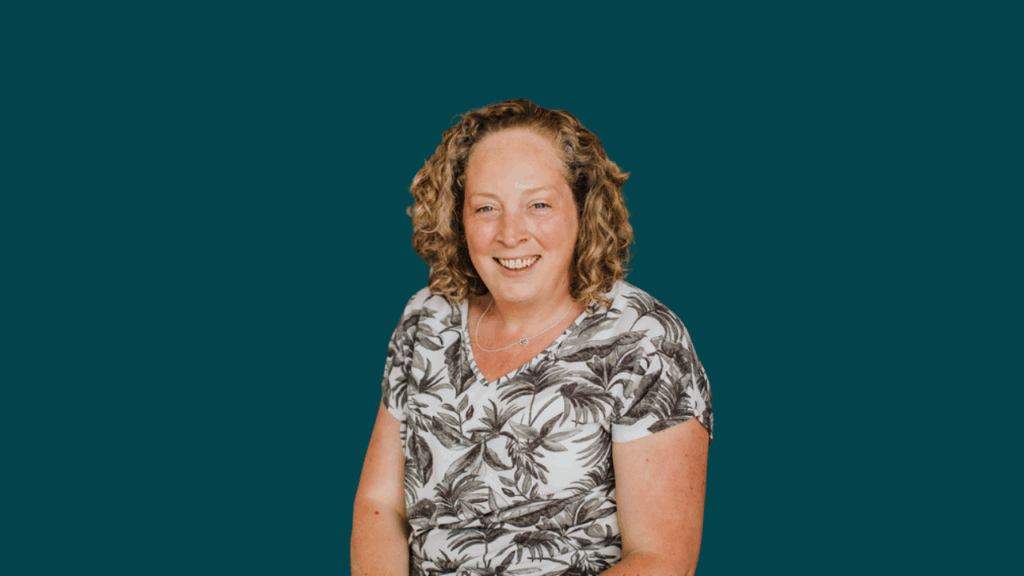
Roshni is a Software Engineer at MyNewTerm, where she spends her days coding, debugging, testing, and collaborating with the team to deliver smooth, reliable solutions. Inspired by her cousin, she pursued Computer Science and turned her passion for problem-solving into a career.
What she finds most rewarding is cracking tough challenges—whether it’s a complex bug or a brand-new feature request—and transforming them into elegant, reliable solutions. She thrives on continuous learning, clean coding practices, and teamwork that drives the product forward.
What does a typical day in your role look like?
I will wake up at 6am and get ready to work at 8am. This varies; if I’m working from home, then it’s about a 20-minute journey across town to my office. I start work at about 8.45am. As soon as I get to my desk, I switch on my monitors, log in and then I’ll start the day by catching up on emails and checking out what’s been happening on Slack since I was last online. Also, check the calendar there is any meeting scheduled for today, so I can adjust my work accordingly. Depending on the task, I will work through our Bug/Feature list tickets and try to understand the issue. If there are any dependencies in the task, I will discuss with the team what the best way is to solve the issue and best design practices for the current task in order to ensure for smooth deployment. If any bugs which I couldn’t replicate, i will ask the team to get support. Once I have a clear understanding of the tasks, I prioritise them. My work throughout the day involves a mix of coding, debugging, and testing. If I’m working on a new feature, I’ll focus on writing clean, efficient code and creating unit tests. For bug fixes, I’ll dive into the existing codebase, identify the root cause, and implement a solution, followed by thorough testing to ensure the bug is resolved and no new issues are introduced. I typically take a lunch break around 12.30 PM, stepping away from my desk to recharge. In the afternoon, I continue working through my prioritised tasks. I might also participate in stand-up meetings to discuss progress, blockers, and upcoming work with the team. Collaboration is key; I frequently reach out to colleagues for code reviews, to clarify requirements, or to brainstorm solutions for complex problems. Towards the end of the day, usually around 4.30 PM, I’ll start winding down. I’ll make sure to save all my work, check for any urgent messages or emails, and review my progress against my daily goals. I’ll also update the status of my tickets in our tracking system. Before logging off, I’ll often take a quick look at the next day’s calendar and my task list to get a head start on planning. I aim to finish around 5:00 PM, leaving my desk feeling accomplished and ready to tackle whatever comes next.
How did you get started in this industry?
My journey into this industry really started because of my first cousin, who’s a software developer. Seeing their passion for creating solutions and solving complex problems with code was incredibly inspiring. I remember being fascinated by how they talked about building a website, seeing a project they’d worked on come to life and realising the impact their work had. That inspiration truly sparked my interest in technology. From there, I decided to pursue a career in Computer Science, which provided me with a strong foundation. While my formal education was crucial, I also spent a lot of time in self-learning, like contributing to completing online courses on platforms like Udemy. These hands-on experiences were vital for translating theoretical knowledge into practical skills and solidifying my passion.
What do you find most rewarding about your job?
For me, the most rewarding aspect of my job is definitely problem-solving. There’s a unique satisfaction that comes from taking a complex bug or a new feature request – essentially a puzzle – and breaking it down, understanding its intricacies, and then designing and implementing a solution that works flawlessly. Especially when I encounter a bug I can’t immediately replicate, and then through collaboration and investigation, we pinpoint the issue and fix it. It’s about seeing a challenge through to a well-crafted solution. Also I love that I’m always pushed to expand my knowledge, whether it’s through understanding a new system, learning a different design pattern, or collaborating with experienced colleagues to find the best way to tackle a problem. The feeling of constantly improving my skills and becoming a more capable developer is incredibly fulfilling.
What’s your go-to productivity hack or tool?
My go-to productivity hack, especially in a role with varied tasks like ours, is the ‘Pomodoro Technique’ combined with a dedicated ‘Deep Work’ block.
What’s the best advice you’ve ever received?
The most impactful advice I’ve received is: Code is read far more often than it’s written, and communication is just as important as technical skill. This really shifted my perspective. It taught me the importance of writing clean, well-documented code that’s easy for others (and my future self) to understand. Beyond that, it underscored that great software is a team sport. Being able to clearly articulate technical concepts, discuss designs, and ask for help when needed are skills that elevate not just my work, but the entire team’s productivity and the quality of our deployments. It’s about building solutions together, not just individually.
What’s something people might be surprised to learn about you?
Given the analytical nature of my work in software development, people are often surprised to learn about my deep passion for solo travel and photography. While my weekdays are spent immersed in code and logic, my holidays are dedicated to exploring new places independently, experiencing different cultures firsthand, and capturing those moments through my lens. There’s a unique satisfaction in planning an entire journey on my own, discovering hidden gems off the beaten path, and then translating the beauty of a landscape or the essence of a street scene into a compelling photograph. It’s a creative outlet that allows me to disconnect, recharge, and approach my technical challenges with a refreshed perspective.
If you could swap jobs with anyone for a day, who would it be?
If I could swap jobs with anyone for a day, I’d definitely choose Debbie, the Project Manager/Project Owner. In my current role, I’m deeply involved in solving technical challenges and implementing solutions. I’m constantly working through bug lists and feature tickets. While I get glimpses of the bigger picture through team discussions and understanding dependencies, I’d love to experience the full scope of bringing a project from conception to deployment from a Project Manager’s perspective.
I’m particularly interested in seeing how they juggle multiple moving parts, manage expectations, allocate resources, and keep the entire team aligned and on track. Understanding their strategies for mitigating risks and ensuring smooth deployments, especially with the dependencies we often encounter, would be incredibly insightful. It would provide a holistic view of the entire software development lifecycle that goes beyond the code, and I believe that insight would make me an even more effective developer in my own role.



